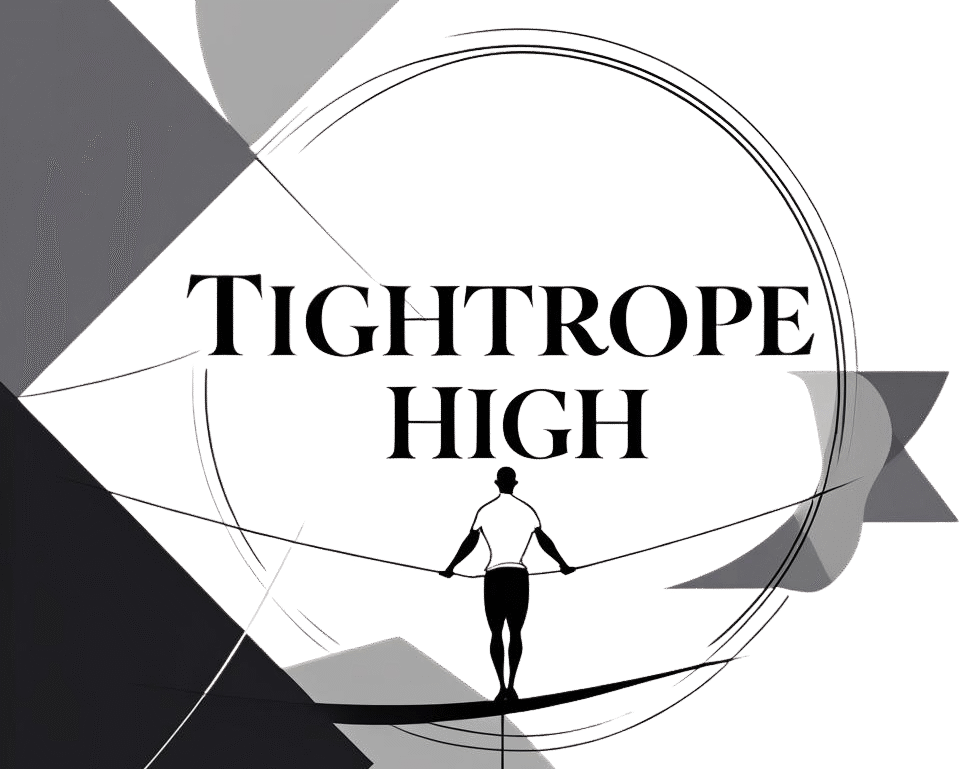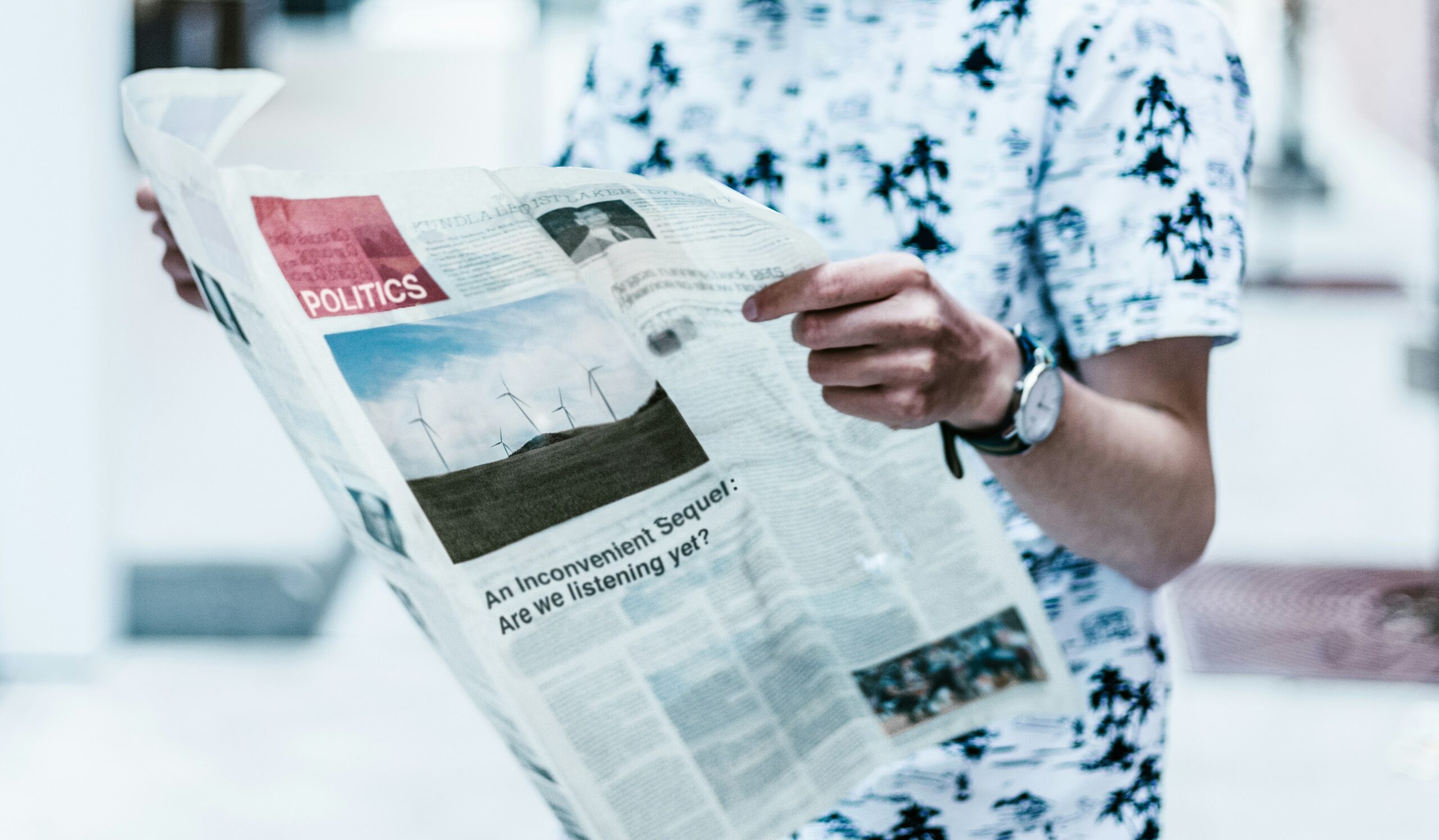From this far south of the equator, the American landscape often feels like a vast mirror reflecting the world’s collective anxieties: magnified, dramatized, and broadcast for everyone to witness. What happens in the United States seldom stays there. Its political storms spill into the global consciousness like ripples across a still pond.
And yet, what fascinates me most isn’t the policies debated or the elections fought. It’s the quiet, psychological drama underneath it all: how citizens have begun to build their very identities around the political banners they wave.
To watch this from afar is to see an ancient human impulse dressed in modern colours. Politics, once the art of governing, has become the art of belonging.
Every era has had its tribes. Ours just have better branding.
Social media has replaced the village fire, algorithms are the new the village elder. And around this digital fire, people gather not to listen, but to declare: I am one of us, not one of them.
In the United States, political allegiance has become the new totem of identity. Red or blue. Liberal or conservative. Progressive or traditional. Left or right. Each tribe comes with its own language, rituals, and moral code. To question that code is to risk exile.
But this is not just a political issue, it’s a psychological one. Humans are storytelling creatures. We need to belong somewhere, to someone, to something. When religion lost its central hold in many Western societies, and when civic institutions began to erode, politics quietly stepped into the void.
Parties stopped being platforms and started being families of belief. And as with all families, betrayal hurts more than disagreement.
Psychologists have a term for this: identity fusion. That’s when a person’s sense of self becomes deeply entangled with their group identity. Once this happens, defending the group feels like defending one’s own life.
It’s no longer about ideas; it’s about survival.
That’s why rational debate has become so difficult in polarized societies. Facts no longer operate as bridges of understanding; they’re treated as weapons of attack. When you challenge someone’s political stance, you’re not just questioning their position; you’re questioning who they are.
This is the invisible shift that corrodes democracy from within. Democracy relies on the idea that disagreement is healthy. That it is the mechanism by which truth and balance are achieved. But when citizens take disagreement as an insult, compromise becomes treason, and politics turns from collaboration into combat.
From an outsider’s view, it sometimes seems that America has mistaken opposition for enmity. The great national conversation has fractured into a thousand shouting matches, each amplified by the echo chambers of the internet.
Every tweet, every headline, every debate feels like a battle between identities rather than ideas. One side waves the banner of justice, the other of freedom, each forgetting that a healthy society requires both.
The irony is that both sides often fear the same thing: the loss of belonging, the fear of irrelevance, the terror that one’s worldview, one’s self, might no longer fit into the new order of things.
This psychological dynamic is older than democracy itself. It’s what has driven human beings to war and to worship, to martyrdom and to madness. We would rather destroy the world than be exiled from the story we tell about ourselves.
History has already written the warnings in bold. When identity fuses with ideology, the result is never freedom. It is fanaticism.
In early twentieth-century Europe, whole populations were seduced by movements that offered belonging in exchange for obedience. Citizens were told not just what to believe, but who they were allowed to be. Propaganda blurred into mythology; loyalty became moral law. The opposition was not merely political, it was unclean, subversive, a threat to the nation’s very soul.
Those who resisted were not debated; they were erased.
We are not there now. But the road between moral certainty and moral absolutism is a short one, and history’s shadows grow long when societies forget their warnings.
When politics becomes sacred, heresy is only a heartbeat away.
Beneath all polarization lies a simple, powerful emotion: fear.
Fear that our values are vanishing. Fear that our voices no longer matter. Fear that we will wake up one morning to find that the world has rewritten its rules without consulting us.
Fear simplifies the world into binaries: safety versus danger, friend versus foe. It quiets curiosity and amplifies certainty. It also sells.
Modern political machinery, particularly in the age of algorithms, has learned to monetize fear with scientific precision. Outrage keeps people engaged, and engagement keeps the machine running. Each side’s fear becomes the other’s fuel, locking both into an endless feedback loop of moral panic.
This isn’t unique to the U.S. It’s happening everywhere, just in different languages and different costumes. From populist movements in Europe to nationalist rhetoric in Asia, the psychological blueprint is identical: offer belonging, promise safety, and define the “other” as the reason neither exists.
In any democracy, the center is not just a political position. It’s an act of faith. It is the fragile belief that truth can survive complexity.
But identity politics, by design, destroys the center. It demands purity tests and absolute loyalty. Those who attempt nuance (who say, I agree with some of this, but not all), are often treated with more suspicion than outright opponents.
And yet, the center is where most progress is quietly made. It is the place where dialogue still whispers after the shouting stops. Without it, nations become collections of rival moral universes, each incapable of imagining the other’s humanity.
Watching this from Southern Africa, I see reflections of it everywhere. We, too, wrestle with the legacies of belonging: race, language, history, and power. But distance lends perspective. It becomes clearer that what’s unfolding in the U.S. is not just a political problem, but a human one.
When the self merges with ideology, we stop evolving. When identity replaces introspection, we stop listening. And when opposition feels like an existential threat, democracy itself begins to suffocate.
If there is hope, and I do believe there is, it lies in learning to hold identity more lightly. To remember that political beliefs are not birthmarks; they are tools, and tools can be sharpened, changed, replaced. To understand that belonging is not something others grant us; it is something we build through shared humanity. To relearn that being wrong is not shameful; it is essential to growth.
The 18th-century philosopher John Stuart Mill once wrote that the worth of a state “is the worth of the individuals composing it.” If our identities become inflexible, so too will our societies.
Democracy does not demand uniformity. It demands humility. It asks that we treat disagreement not as desecration, but as dialogue.
The repair of political identity begins not in parliaments or congresses, but in conversations: small, human, and unbroadcast. It begins when people resist the instinct to react and instead choose to inquire.
What would happen if, instead of defending our tribes, we defended our shared curiosity? If, instead of saying “You’re wrong,” we asked, “What are you most afraid of losing?”
Because beneath all the rhetoric and rage, that is what politics really is: a collective negotiation of fear and hope.
Democracy, like the human psyche, is both resilient and fragile. It thrives on openness, on the willingness to doubt, on the acceptance that truth is rarely tidy.
When politics becomes identity, democracy loses its elasticity. It can no longer bend without breaking.
And yet, from this far-off vantage point, I still believe in its possibility; that societies, like people, can mature beyond the instinct to divide.
Perhaps the real test of our time is not whether we can win the argument, but whether we can remember that we belong to something larger than our side.


Leave a Reply